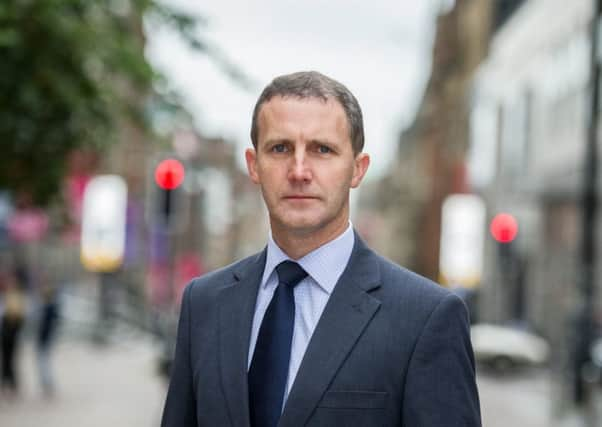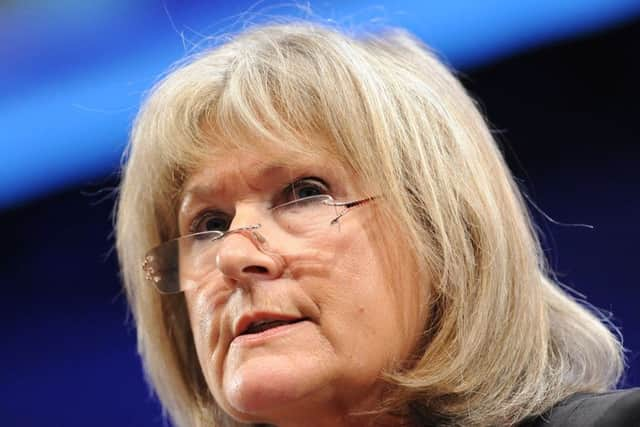Justice Secretary's position '˜untenable' if he blocked top cop's return


Former Conservative justice spokeswoman Margaret Mitchell said the Justice Secretary should not carry on in the role if he went against a unanimous decision by the Scottish Police Authority (SPA) to allow Phil Gormley to go back to operational duty.
Mr Gormley was placed on special leave in September amid investigations into allegations of gross misconduct, which he denies, and has not been back to work since.
Advertisement
Hide AdAdvertisement
Hide AdMr Matheson has been accused of “interfering” in the decision over whether he should return to active duty after the board of the SPA gave Mr Gormley its unanimous backing to go back to work in November.


Mr Gormley’s lawyer David Morgan wrote to the then SPA’s chairman Andrew Flanagan saying his client was “concerned that his return was delayed following intervention’’ by Mr Matheson.
The Justice Secretary will face questions on the matter when he appears before MSPs at Holyrood on Wednesday afternoon.
Ms Mitchell told BBC Radio Scotland’s Good Morning Scotland that the Justice Secretary should come clean about what happened.


She said: “I want to hear if there was an intervention by him. This is a very serious matter and these allegations have been made.
“If he has intervened in a unanimous decision of the SPA that the Chief Constable should return to work... my feeling is his position would be untenable.”
She spoke out after Holyrood’s Public Audit Committee published a series of letters from Mr Gormley’s lawyer, including correspondence with Mr Matheson and Mr Flanagan.
In the letters, Mr Morgan said the board of the SPA had made a “unanimous decision” in November that the period of special leave should be rescinded and Mr Gormley should be allowed to return to work.
Advertisement
Hide AdAdvertisement
Hide AdThe lawyer accused Mr Matheson of making an “apparent intervention” to prevent this, saying Mr Gormley had been “surprised” to be told he should not come back.
Mr Morgan said: “Despite the clear and unanimous decision of the SPA board my client’s return to work was postponed on the afternoon of November 9 2017.
“My client was travelling back to Scotland in order to resume his duties when he was contacted by the former chair of the SPA, Andrew Flanagan, and told not to continue the journey.
“My client was told that this followed a meeting between Andrew Flanagan and the Cabinet Secretary for Justice earlier the same afternoon.”
Mr Gormley “remains ready and willing to return to full operational duties”, the lawyer said.
In a letter to the Justice Secretary, Mr Morgan said: “There is no lawful basis for the Scottish Government’s intervention or interference with the lawful decision of the SPA, as the sole statutory body tasked with the operational deployment of the Chief Constable.”
In a separate letter to Mr Flanagan, the lawyer said he was reserving Mr Gormley’s “legal rights to challenge any failure to implement the board’s decision by way of application for judicial review, should this be necessary”.
The decision for Mr Gormley to be placed on leave is kept under review by the board of the SPA, which will next consider the matter on January 25.
Advertisement
Hide AdAdvertisement
Hide AdA Scottish Government spokeswoman said: “The position of the Chief Constable is a matter for the Scottish Police Authority Board who have kept it under review on a four-weekly basis while an investigation is conducted by the Police Investigations and Review Commissioner (PIRC).
“As was made clear at last month’s Audit Committee, the Scottish Government sought assurances that decisions by the SPA were being made on a fully informed basis including seeking the views of the PIRC.”
